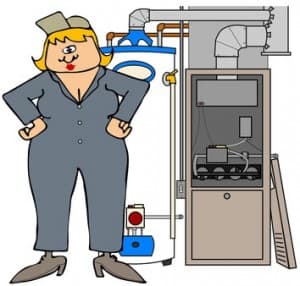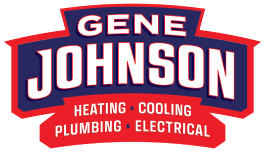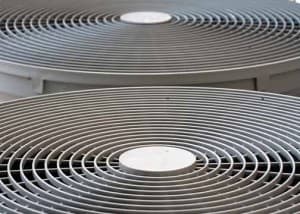
Preliminary Steps
1. Even though you are finished with the heat for the season, you should note any problems you had with it this winter.
Taking care of heating repairs now can land you an appointment quickly, and you can have a fully functioning system by fall.
2. Install your air conditioning units. Make sure they are secured into the wall. If they fall out, they can crush whomever it belongs to. Also, you should drill them into the window to help prevent break-ins.
3. Clean out the filters of your individual units or your main units. When the filter isn’t clean, the air may run warm. Also, if hair, fur or other elements build up in the filter, you could end up starting a fire.
4. Clear away anything that is around the unit. You need to make sure you don’t have items piled on top of it or near it. Once you have prepared for the units to run, you can make sure they are functioning properly.
The Time to Turn the Unit on
5. Before you turn the unit on for the season, you should check that the ducts are functioning and do not have holes in them. Holes in the ducts can drain energy, which leads to you spending more money.
6. Once you have ensured that it is safe to do so, you can run the units to evaluate how they are functioning. You may notice that the unit takes longer than usual to boot up or that the air is not as cold as it used to be.
7. Don’t waste time. You shouldn’t wait until the first hot day of the summer to run your air conditioning for the first time. Instead, do it when it’s still moderate out, so that you are ready.
 Scheduling Maintenance
Scheduling Maintenance
8. You may even wish to run your unit in March or April just to see if any problems exist. That way, you are prepared well in advance of the air-conditioning-repair rush.
9. Even if you do not find any problems with your unit, you may wish to opt for regular maintenance. Doing so helps you to detect problems before they grow, which can also save you money in the long term.
10. Continue to monitor your system or units. You want to make sure you call for advice and an appointment at the first sign of trouble.
Following these tips helps to keep your house nice and cold when the heat and humidity arrive.
If you live in the Seattle area, and are having HVAC troubles, Call Gene Johnson Heating, Cooling, Plumbing and Electrical at 206.792.7495 and find out how you can get your HVAC unit back!

 Scheduling Maintenance
Scheduling Maintenance



